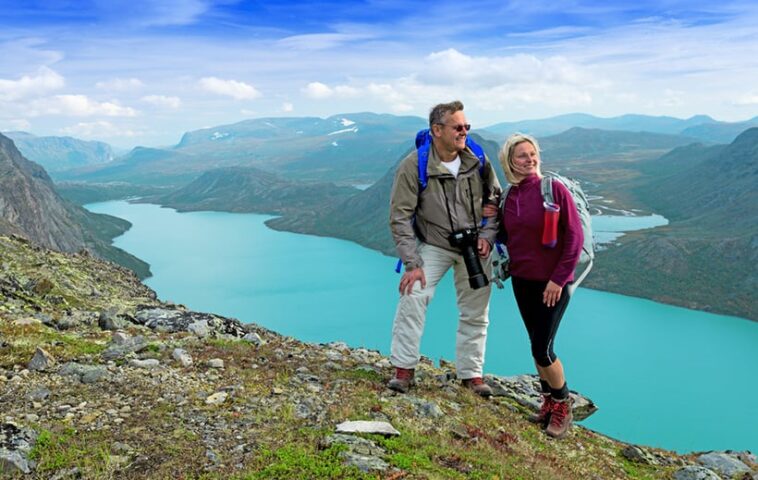In Norway, the concept of ‘”friluftsliv”‘ (pronounced free-loofts-liv) is not just an activity; it’s a way of life. It translates directly to “free air life” in English and encapsulates the deep-seated Norwegian love for the outdoors.
It’s a cultural identity that reverberates through every aspect of Norwegian life, from everyday routines to leisure and even in their approach to education and work-life balance.
This profound connection with nature is vividly embodied in places like the Mirrored Glass Cabin, where the beauty of the Norwegian wilderness is mirrored in both architecture and lifestyle.
As a traveler who has explored various global lifestyles, the Norwegian commitment to outdoor life always strikes me as both unique and inspiring.
“Friluftsliv” at the Core of Norwegian Lifestyle
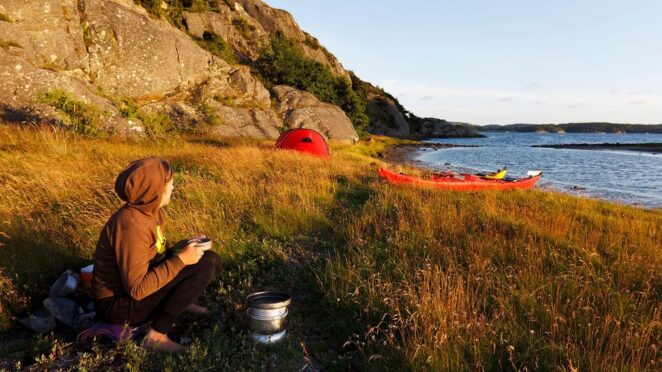
“Friluftsliv” is rooted in the idea that returning to nature is a return to home. It’s about more than just embracing outdoor activities. It’s about finding a sense of peace, freedom, and connection to the natural world.
Whether it’s through their mirrored glass cabins or the pristine riverside setting, Wonderinn exemplifies how modern comfort can coexist beautifully with a profound respect for nature.
Experiencing Norway’s “Friluftsliv”
In Norway, the philosophy of “friluftsliv,” or open-air living, is a cherished part of the culture, particularly evident in riverside areas. These locations offer direct access to the serene beauty of Norway’s natural landscapes, embodying the essence of a harmonious outdoor lifestyle. In these settings, visitors have the opportunity to engage in a variety of quintessential Norwegian activities, such as hiking through lush trails, fishing in clear waters, or simply enjoying the tranquility of nature. This immersive experience in the heart of Norway’s wilderness captures the true spirit of connecting with the environment in a meaningful way.
“Friluftsliv” Across the Seasons
In Norway, “friluftsliv” is embraced throughout the year, regardless of the season. During the long summer days, hiking, camping, and kayaking are popular activities. Families and friends often gather at cabins in the mountains or by the fjords, enjoying the extended daylight hours.
In winter, despite the cold and snow, Norwegians continue to engage with the outdoors. Skiing, both cross-country and downhill, is a national pastime, and even in urban areas like Oslo, nature trails and ski tracks are easily accessible.
“Friluftsliv” and Norwegian Health
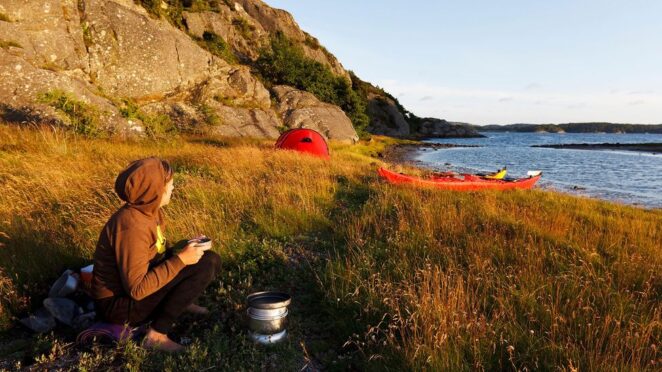
This deep connection with nature has significant health benefits. Research suggests that engaging with the outdoors contributes to both physical and mental well-being. In Norway, this is evident in the population’s general health and the value they place on work-life balance. Outdoor activities are seen as a way to unwind, reconnect, and maintain a healthy lifestyle.
To harness these health benefits, incorporate regular outdoor activities into your routine, like walking, cycling, or even mindful moments in nature. Embrace seasonal changes. Enjoy skiing or snowshoeing in winter and hiking or swimming in summer, enriching your connection with the natural world.
“Friluftsliv” in Education and Work
The concept of “friluftsliv” is also integrated into the Norwegian education system. Schools encourage outdoor learning experiences and activities, fostering a connection with nature from a young age. In the workplace, the concept manifests through team-building exercises in natural settings and a general encouragement of outdoor activities for employee health.
Interestingly, Norwegian schools often have ‘outdoor days’ where lessons are conducted in forests, by lakes, or in mountain areas, emphasizing experiential learning.
This approach has been linked to improved concentration, creativity, and academic performance in students. In the workplace, companies in Norway sometimes hold meetings while hiking, believing that fresh air and movement spark better ideas and collaboration.
Additionally, many Norwegian businesses offer ‘active lunch breaks’ with activities like yoga or jogging, highlighting the belief that a healthy employee is a productive one. This integration of “friluftsliv” into everyday life showcases Norway’s innovative approach to education and work culture.
Sustainability and Environmental Respect
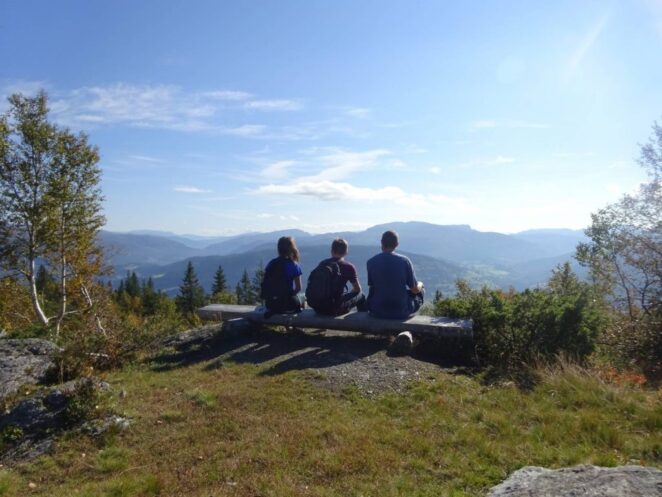
With a culture so intertwined with nature, it’s no surprise that sustainability and environmental respect are paramount in Norway. “Friluftsliv” goes hand in hand with conservation efforts, as experiencing the beauty of nature also instills a desire to protect and preserve it. This attitude towards environmental stewardship is evident in Norwegian policies and practices.
“Friluftsliv” in Urban Settings
Even in urban areas, “friluftsliv” is a key part of life. Cities like Oslo are designed with ample green spaces, parks, and access to the waterfront. Urban dwellers often spend their weekends hiking in nearby forests or skiing on local trails, proving that “friluftsliv” is not just confined to rural areas.
“Friluftsliv” for Everyone
One of the most beautiful aspects of “friluftsliv” is its accessibility. It’s an egalitarian concept, enjoyed by people from all walks of life. In Norway, there is a common right of access to the countryside, known as ‘allemannsretten’, which allows everyone to roam freely in nature, as long as they respect and care for the environment.
To fully embrace ‘allemannsretten’, it’s important to follow the principle of ‘leave no trace’. Always clean up after yourself, respect wildlife and plant life, and stay on designated paths. Remember, this right comes with the responsibility to preserve nature’s beauty for future generations to enjoy.
Embracing “Friluftsliv” Beyond Norway
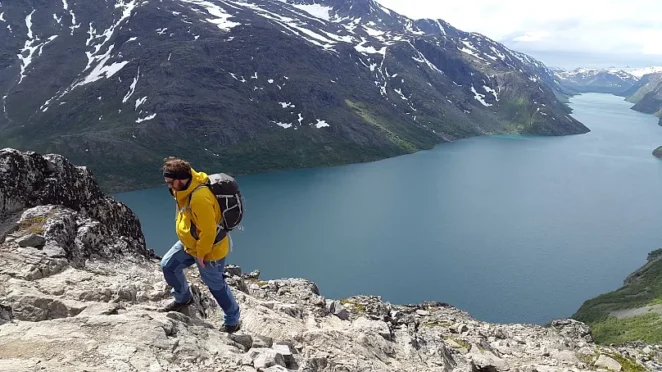
As the world becomes increasingly urbanized and digital, the Norwegian concept of “friluftsliv” offers a refreshing perspective on the importance of connecting with the natural world. It’s a reminder of the joy and tranquility that can be found in nature and the need to preserve our natural surroundings.
While not everyone can experience the pristine beauty of Norway’s landscapes, the essence of “friluftsliv” can be adopted anywhere – a commitment to regularly step away from the daily grind, immerse oneself in the natural environment, and respect the world around us.



